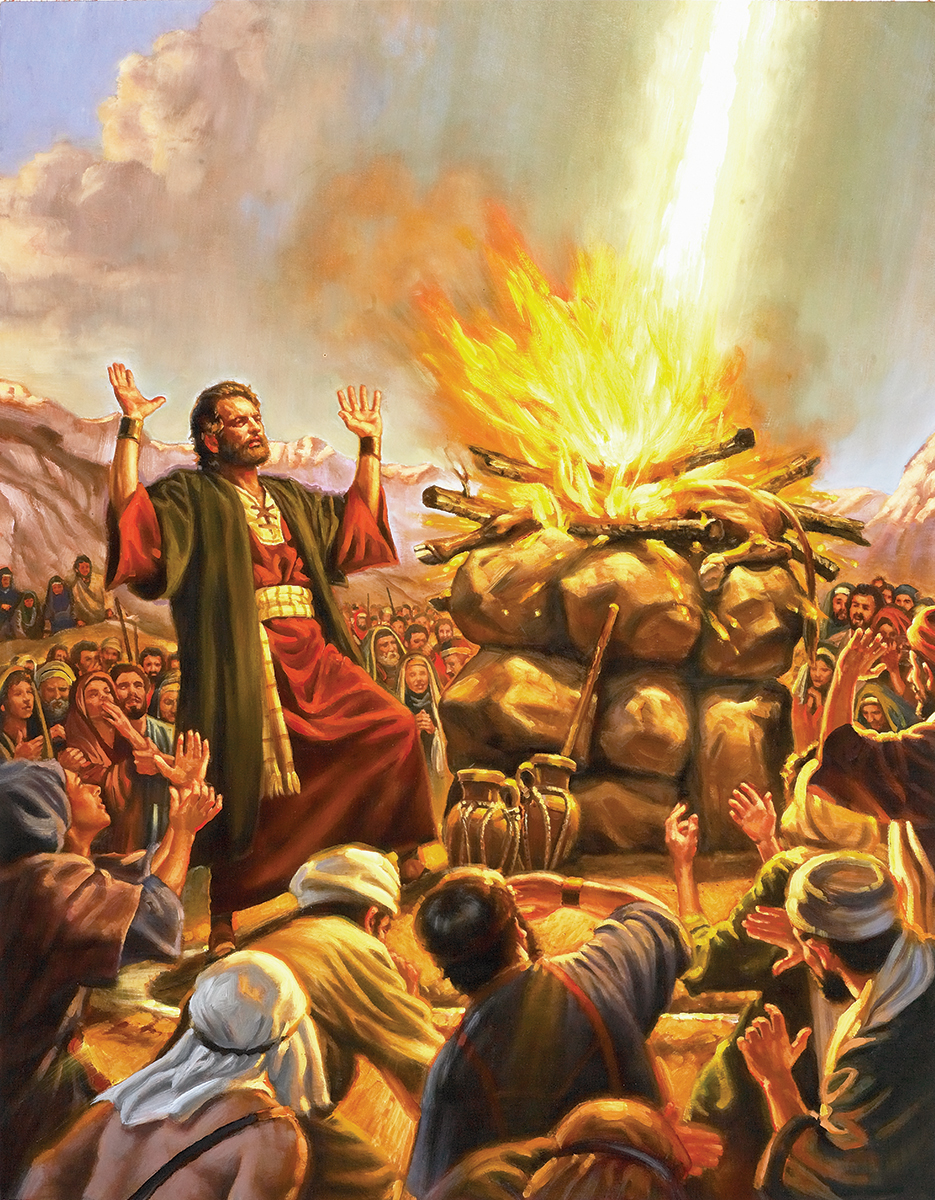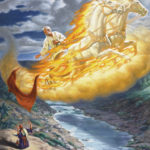The text for this lesson is 1 Kings 18:20–46
Key Point
- Just as the true God revealed Himself on the altar of Mount Carmel, so on the cross-shaped altar of Mount Calvary Jesus revealed, once and for all, that He alone is the real God who loves us enough to die for us.
- Law: God demands that I fear, love, and trust in Him alone; yet I sinfully place my trust elsewhere.
- Gospel: Jesus proved that He is the true Lord by offering Himself as the sacrifice for sin, once and for all. He calls me back from my sin to His forgiving embrace.
Discussion Points
- Syncretism is the combination of different religions into one form of worship and prayer. Is this ever a defensible position? See 1 Kings 18:21; Joshua 24:15; and Matthew 6:24. What forms of syncretism are common today?
- What promises and threats did the Lord give to Israel (particularly the tribe of Judah) in 1 Kings 9:1–9? Which of the Ten Commandments does this passage deal with? What can we learn from this passage even today?
- Contrast the behavior of Elijah with the prophets of Baal (1 Kings 18:23–37), incorporating insights from Deuteronomy 14:1 and 1 Corinthians 14:33. What is the biggest difference between Elijah’s prayer and that of the prophets of Baal? See Romans 10:13.
- What parts of 1 Kings 18:30–39 highlight God’s covenant relationship with Israel? How does the outcome of this event agree with Paul’s teaching in 1 Corinthians 8:4–6?
- Describe the change in attitude of the Israelites from 1 Kings 18:21 to 18:39. Was their worship out of fear, love, or trust in the Lord? According to Philippians 2:5–11, how will believers and unbelievers alike react to Jesus’ name on the Last Day?
- It seems extraordinarily harsh in 1 Kings 18:40 that Elijah would slaughter the prophets of Baal, but according to Deuteronomy 17:2–5, who sanctioned such a penalty? What does this event preview? See Matthew 13:47–50.
- In 1 Kings 18:21, Elijah sets up a very strict either/or: Yahweh or Baal. How is this similar to the Christian life? See Matthew 10:37–39 and 16:24–26. In what way are we at times still like the Israelites of Elijah’s time?
- What moved Elijah to pray for rain (1 Kings 18:41–46)? See 1 Kings 8:35–36 and 18:1. From where did the power in his prayer come? What about our prayers? See James 5:16–20.







